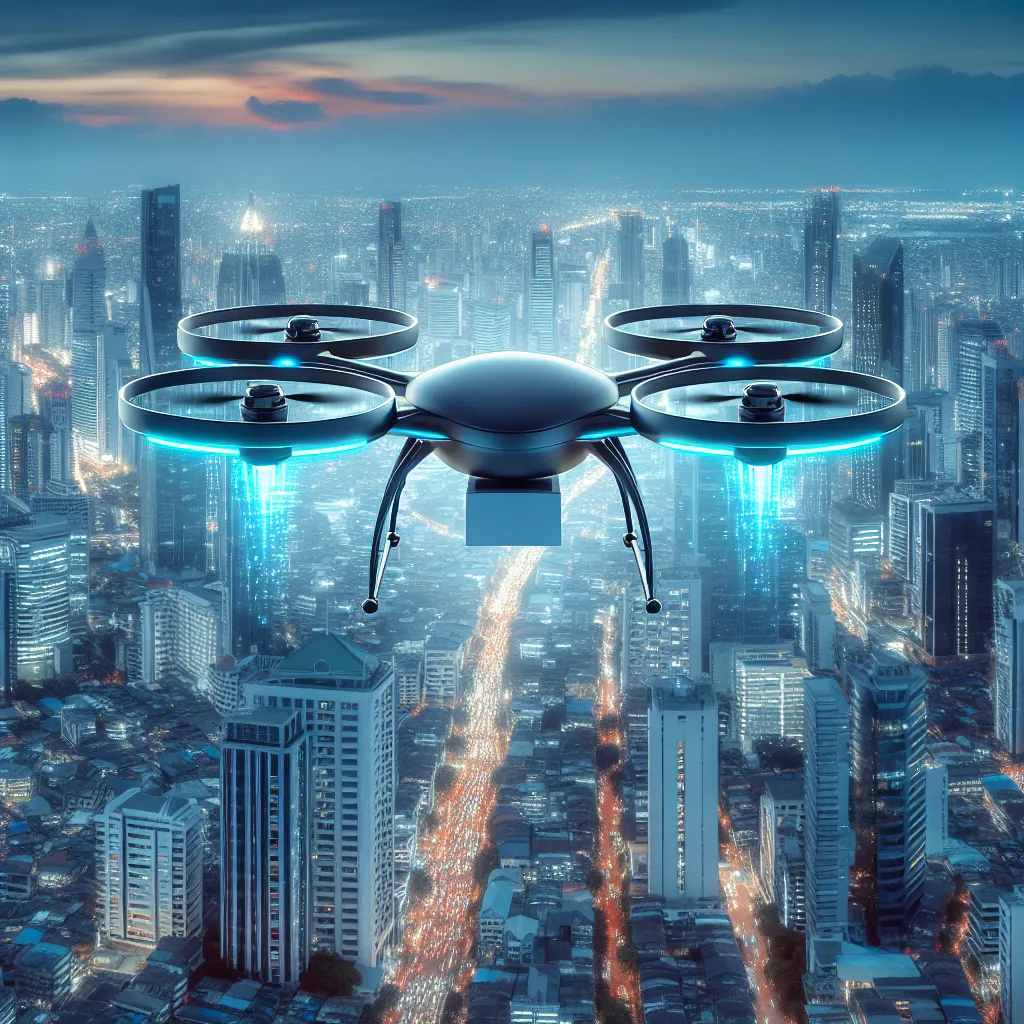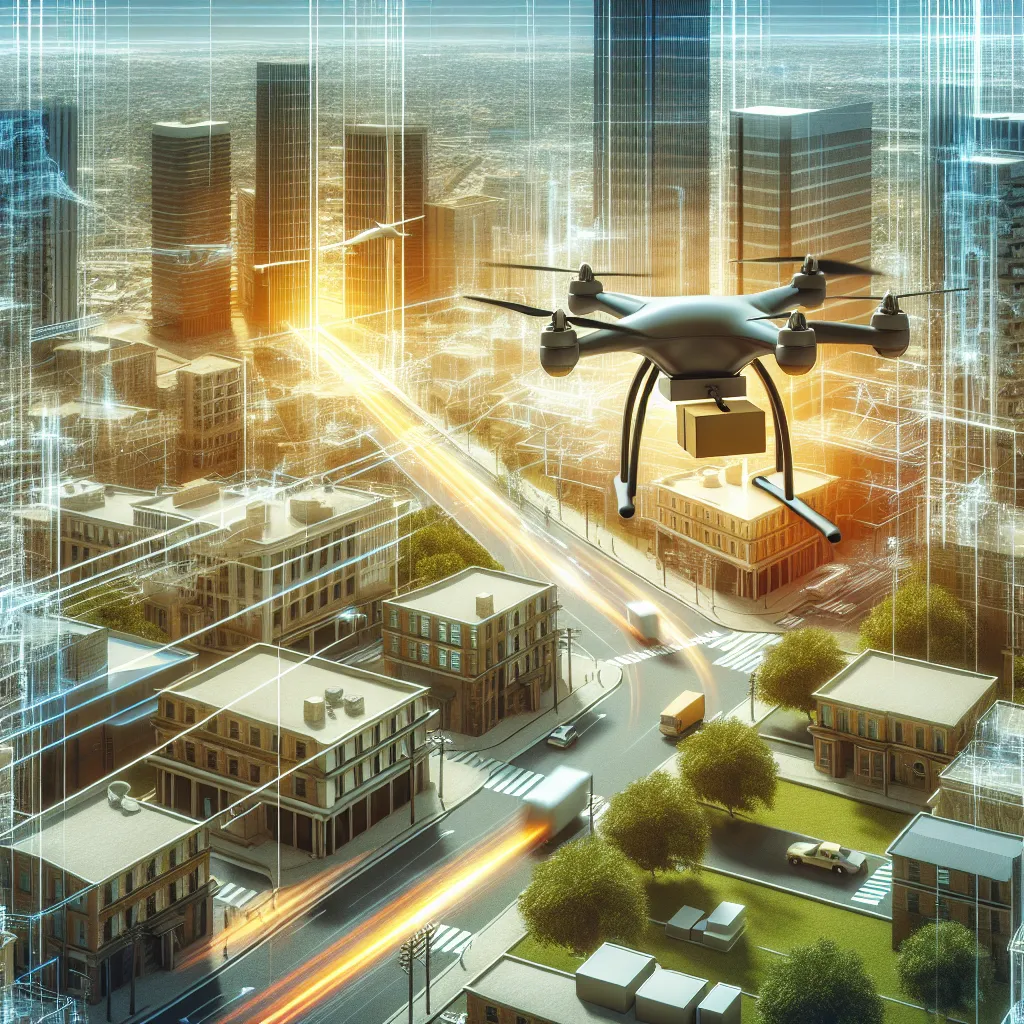Drone Delivery: Revolutionizing the Last Mile
Drone delivery is revolutionizing the last mile in the logistics and delivery industry, marking a significant shift in the way goods are transported and making a profound impact on the future of delivery. With technological advancements rapidly reshaping the landscape of delivery services, drones have emerged as a game-changing innovation, offering unparalleled efficiency and speed in the last-mile delivery process.
The use of drones in delivery operations is poised to address several challenges encountered in traditional delivery methods, including traffic congestion, costly and time-consuming delivery routes, and environmental concerns. By leveraging drone technology, delivery companies can optimize their operations, significantly reduce delivery times, and minimize the environmental footprint associated with conventional delivery vehicles.
Furthermore, the integration of advanced navigation systems and AI-powered route optimization enables drones to navigate complex urban environments with precision, ensuring seamless and accurate deliveries to the end customers. This not only enhances the overall delivery experience but also helps in streamlining the entire delivery supply chain.
As drone technology continues to evolve, it is expected to play a pivotal role in the delivery ecosystem, particularly in reaching remote or hard-to-access locations where traditional delivery vehicles face limitations. The potential for drones to facilitate quick and efficient deliveries in rural areas, disaster-affected regions, or urgent medical supply scenarios further underlines their transformative impact on the future of delivery.
In conclusion, drone delivery stands as a prime example of how technology innovations are reshaping the future of delivery, offering unprecedented opportunities to enhance efficiency, reduce costs, and meet the evolving demands of the modern consumer landscape. With ongoing advancements and regulatory developments, the integration of drones in delivery operations is positioned to redefine the last mile, setting new standards for convenience and reliability in the delivery industry.
AI-Powered Logistics: Streamlining Delivery Operations
Artificial Intelligence (AI) is revolutionizing the delivery industry, streamlining operations and enhancing efficiency. AI-powered logistics solutions are at the forefront of this transformation, offering significant improvements in route optimization, demand forecasting, and real-time tracking.
One of the key advantages of AI in delivery operations is its ability to analyze vast amounts of data to identify patterns and optimize delivery routes. By taking into account variables such as traffic conditions, weather, and historical delivery data, AI algorithms can generate the most efficient and cost-effective routes in real time. This not only reduces delivery times but also minimizes fuel consumption, leading to cost savings and environmental benefits.
Furthermore, AI enables precise demand forecasting by analyzing historical data and current trends. This empowers delivery companies to accurately anticipate demand fluctuations, optimize inventory levels, and allocate resources effectively. As a result, businesses can minimize stockouts, reduce excess inventory, and enhance customer satisfaction through timely and reliable deliveries.
Real-time tracking is another area where AI is driving significant improvements in delivery operations. AI-powered systems provide detailed visibility into the entire delivery process, allowing companies to monitor the status of shipments, predict potential delays, and proactively communicate updates to customers. This level of transparency not only builds trust but also allows for quick interventions in case of unforeseen circumstances, such as traffic congestion or adverse weather.
In conclusion, AI-powered logistics solutions are shaping the future of delivery by revolutionizing route optimization, demand forecasting, and real-time tracking. As the technology continues to advance, we can expect further enhancements in efficiency, cost-effectiveness, and customer experience, making AI an indispensable tool for delivery operations in the modern era.
Blockchain in Supply Chain: Enhancing Transparency and Security
In the fast-paced world of delivery services, technology plays a crucial role in shaping the future of logistics. One of the most promising innovations in this field is the integration of blockchain technology into supply chain management. Blockchain, the distributed ledger system that underpins cryptocurrencies, is proving to be a game-changer for enhancing transparency and security in delivery processes.
By utilizing blockchain in supply chain management, companies can create a tamper-proof digital ledger of transactions and movements of goods. Every transaction is verified by multiple parties and added to the chain as a “block,” creating a transparent and unalterable record of the product’s journey. This level of transparency not only minimizes the risk of fraud and errors but also enables real-time tracking of shipments, leading to improved efficiency and customer satisfaction.
Furthermore, the decentralized nature of blockchain technology means that the information is stored across a network of computers, making it virtually impervious to hacking and unauthorized alterations. This heightened security is particularly valuable in an industry where sensitive data and high-value goods are constantly in transit.
As the adoption of blockchain in supply chain management continues to grow, we can expect to see a significant transformation in the delivery industry. The enhanced transparency and security offered by this technology have the potential to streamline processes, reduce costs, and build trust among all stakeholders involved in the delivery chain.
In conclusion, the integration of blockchain in supply chain management is set to revolutionize the future of delivery by enabling greater transparency and security. As companies embrace this innovative technology, it is clear that blockchain will play a pivotal role in shaping the next generation of logistics and fulfillment services.




